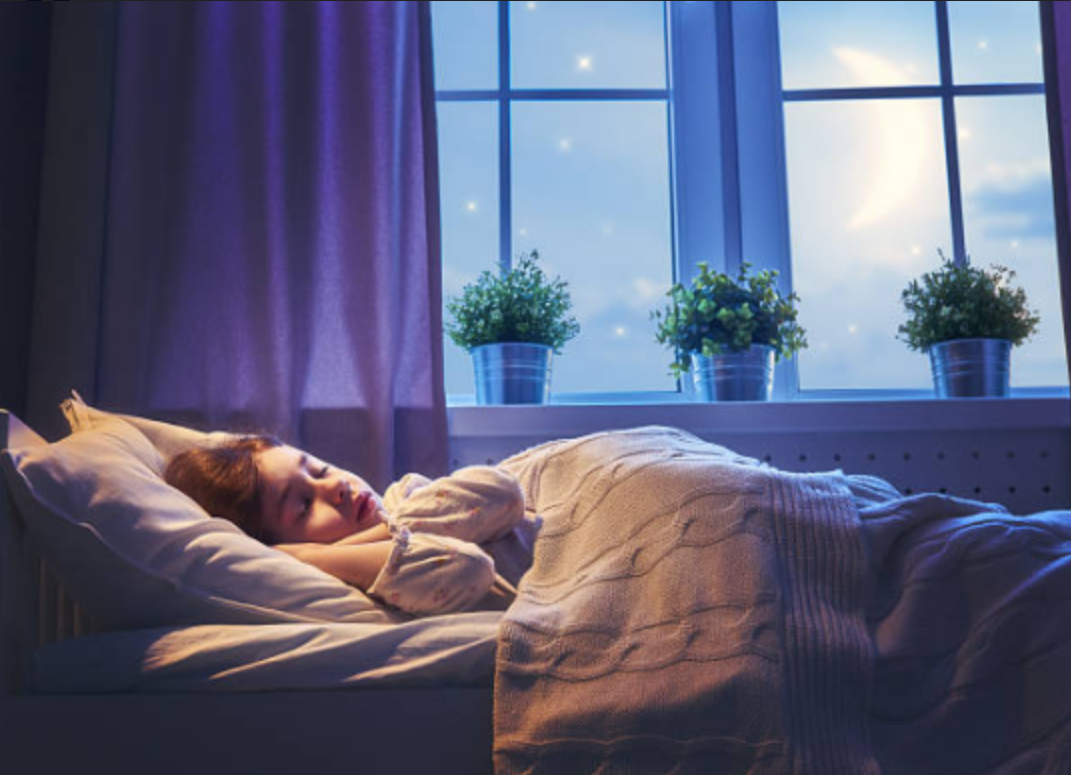By Kyle Cox
Kyle Cox of Blindster talks about the effect light pollution can have on our sleep and how failing to regulate that light can lead to poor school performance in kids and overall health issues.
Light pollution is a fact of life, especially in busier, more urban areas. You can find disruptive lighting in the streetlights that dot our neighborhoods, car lights, and lighting from buildings. This light seeps into our bedrooms and can significantly affect our sleep. Lack of sleep, if not remedied, can eventually lead to health issues.

The Kids Need Sleep!
According to a Sleep in America poll, more than 90% of high school students in the United States are chronically sleep-deprived, with 20% getting fewer than five hours a night. Studies show that melatonin, the hormone that promotes sleep and tells the body that it’s dark and time to start settling in for a snooze, slows secretion when exposed to light. Light pollution interrupts our circadian rhythm, affecting our sleep/wake cycle.
A study conducted by the National Comorbidity Survey Adolescent Supplement sought to study the sleep patterns of teenagers. Teens filled out sleep and mental health questionnaires, and the results were cross-referenced with average artificial light levels for their homes collected via satellite images. The results showed that teens in cities with higher levels of artificial outdoor light go to bed later and sleep less, they also were more likely to have a mood or anxiety disorder.
The study exposed socioeconomic and racial disparity as well. Levels of nighttime artificial light varied according to factors such as population density and socioeconomic status — teens from immigrant or racial or ethnic minority groups who lived in lower income families were more likely to live in areas with high levels of outdoor light at night.
What may seem like a simple light issue is having devastating effects on the sleep patterns of our young people. What results is a domino effect, with physical health, mental health, and academic performance being negatively influenced.
Mitigating Light Pollution
Since moving all teenagers and college-aged students into the middle of the woods in Montana isn’t a viable option, appropriate solutions need to be sought to mitigate the adverse effects of light pollution.
It may seem like a simple solution, but there’s more to blinds than simply light blocking. There are many options available for light blocking purposes, all of which have a range of light-blocking ability.
You may not need to opt for a complete blackout option. While light pollution can affect your sleep cycle, being in complete darkness during the day can also affect your mood. Finding a happy medium is essential.
Almost any amount of light can disrupt sleep. Quality blinds and shades can filter out light pollution from street lights and headlights and block the early morning sun to help you stay asleep longer and wake up feeling alert and refreshed.
Privacy Matters
Privacy does matter, especially for college students living away from home for the first time. It can be challenging to fall asleep and get deep sleep if you feel unsafe or exposed in your home. The right window treatments can not only filter damaging light pollution but give a person a measure of privacy as well.
Sleep is probably one of the most important foundations of health and well-being. When we are not getting a good night’s sleep, everything can start to fall apart quickly: mental well-being, physical wellness, and one’s ability to perform at school. Studies agree that kids, teenagers, and college students don’t get nearly enough sleep. Investing in some light-blocking and privacy-providing window coverings can help them get the sound sleep they desperately need.




